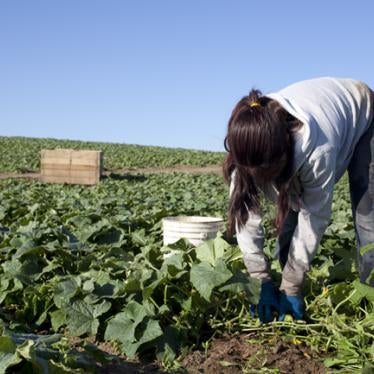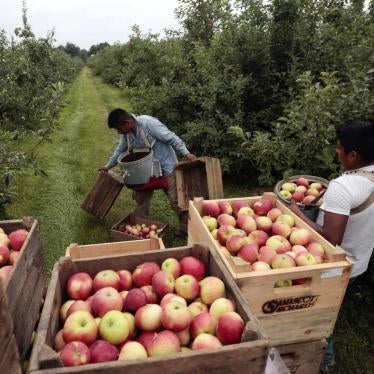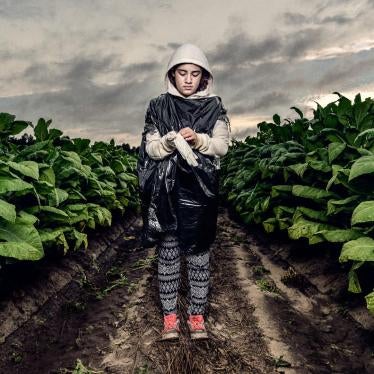Thank you for the opportunity to provide a short statement in support of the proposed regulation that seeks to add chlorpyrifos to the section 326.2(c) list of pesticide active ingredients that are no longer allowed to be distributed, sold, purchased, possessed, or used for any purpose.
I am speaking today on behalf of Human Rights Watch, a non-profit, independent, and global human rights organization. As both an associate of Human Rights Watch and resident of New York state, I urge you to move forward with the proposed legislation to ban the toxic pesticide chlorpyrifos statewide. The bill is essential to protect New York’s children, pregnant people, farmworkers, and environment.
Human Rights Watch has documented exposure of children and workers to toxic substances in a range of countries, including Brazil, Indonesia, Zimbabwe, and the United States. In addition, we have reported on working conditions for farmworker women and children in various parts of the United States. Under both federal and New York State labor laws, children as young as 12 can legally work as hired farmworkers. Estimates put the number of child farmworkers across the US as high as 800,000. Our research has shown that child farmworkers are often exposed to toxic pesticides while they work.
Our 2014 report on hazardous child labor in US tobacco farming found more than half of child farmworkers interviewed had been exposed to unknown pesticides while they worked. Many reported having suffered acute health effects immediately afterward including nausea, vomiting, dizziness, headaches, shortness of breath, burning of the eyes and nose, skin irritation, and redness and swelling of the mouth.
Exposure to chlorpyrifos and other pesticides is harmful for farmworkers of all ages, but children are uniquely vulnerable to the adverse effects of toxic exposures because their bodies are still developing, and they consume more water and food, and breathe more air, pound for pound, than adults.
The scientific evidence on the harms of chlorpyrifos is overwhelming and irrefutable. Research has shown chlorpyrifos to be particularly harmful to human health, especially when pregnant people or young children are exposed. Prenatal exposure has been linked to autism, reduced IQ, and a range of disabilities that impact learning, memory, and attention in children. Yet it continues to be used on food crops across the United States, despite the existence of safer alternatives for many agricultural pests.
International human rights treaties impose on governments the obligation to protect life from foreseeable threats and to ensure the highest attainable standard of health, without discrimination. Under the Universal Declaration of Human Rights “motherhood and childhood are entitled to special care and assistance.” International law also requires that workers be protected from exposure to harmful chemicals. That’s why banning chlorpyrifos is a human rights imperative.
Human Rights Watch has repeatedly called on governments to ban chlorpyrifos, given the strong evidence of its dangers. We welcomed action by the European Union to ban use of the pesticide and denounced the decision by the administration of former US President Donald Trump not to. Ideally this pesticide should be banned countrywide, but given the absence of federal regulation, state laws are essential for curbing use of this hazardous chemical and avoiding exposing women, children and others to its health consequences.
And so Human Rights Watch urges New York State to show its leadership and commitment to public health, human rights, and the environment by moving forward with the proposed regulation to ban chlorpyrifos.
Thank you.








